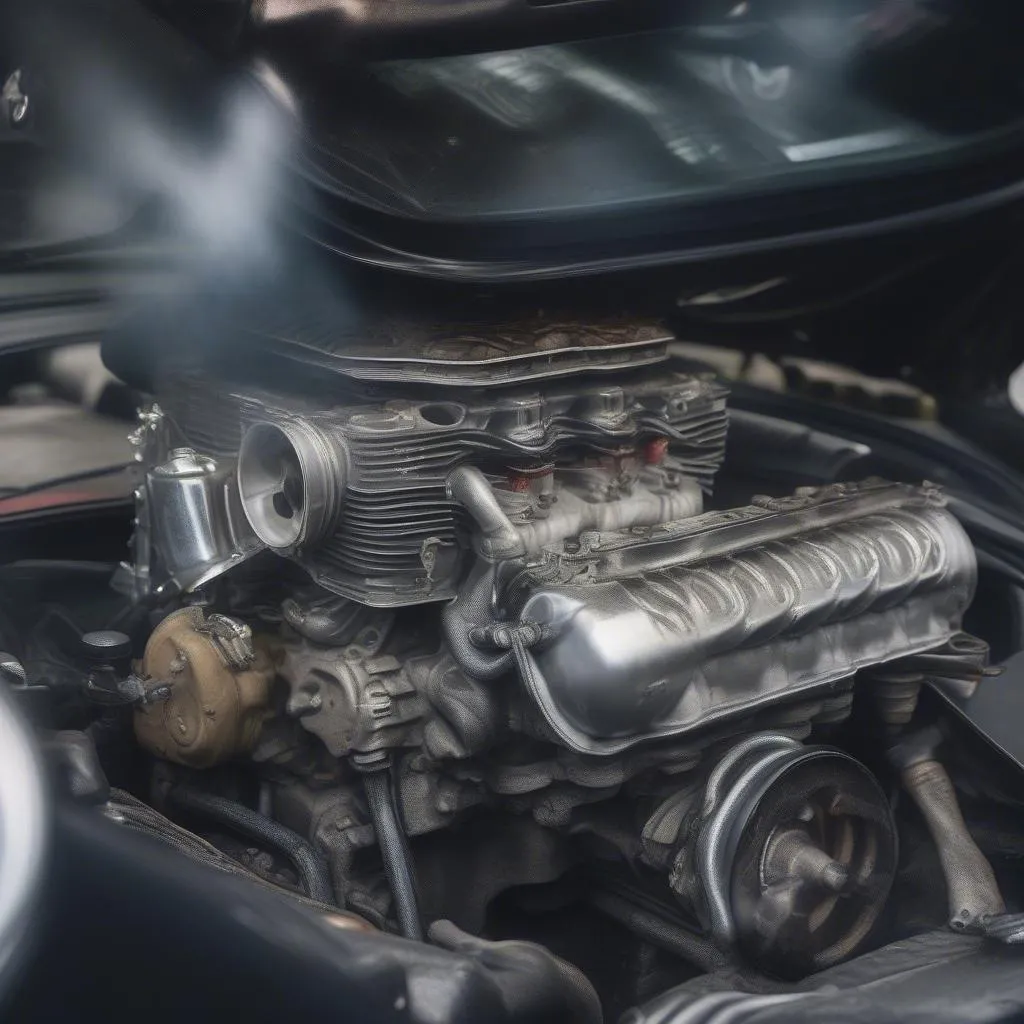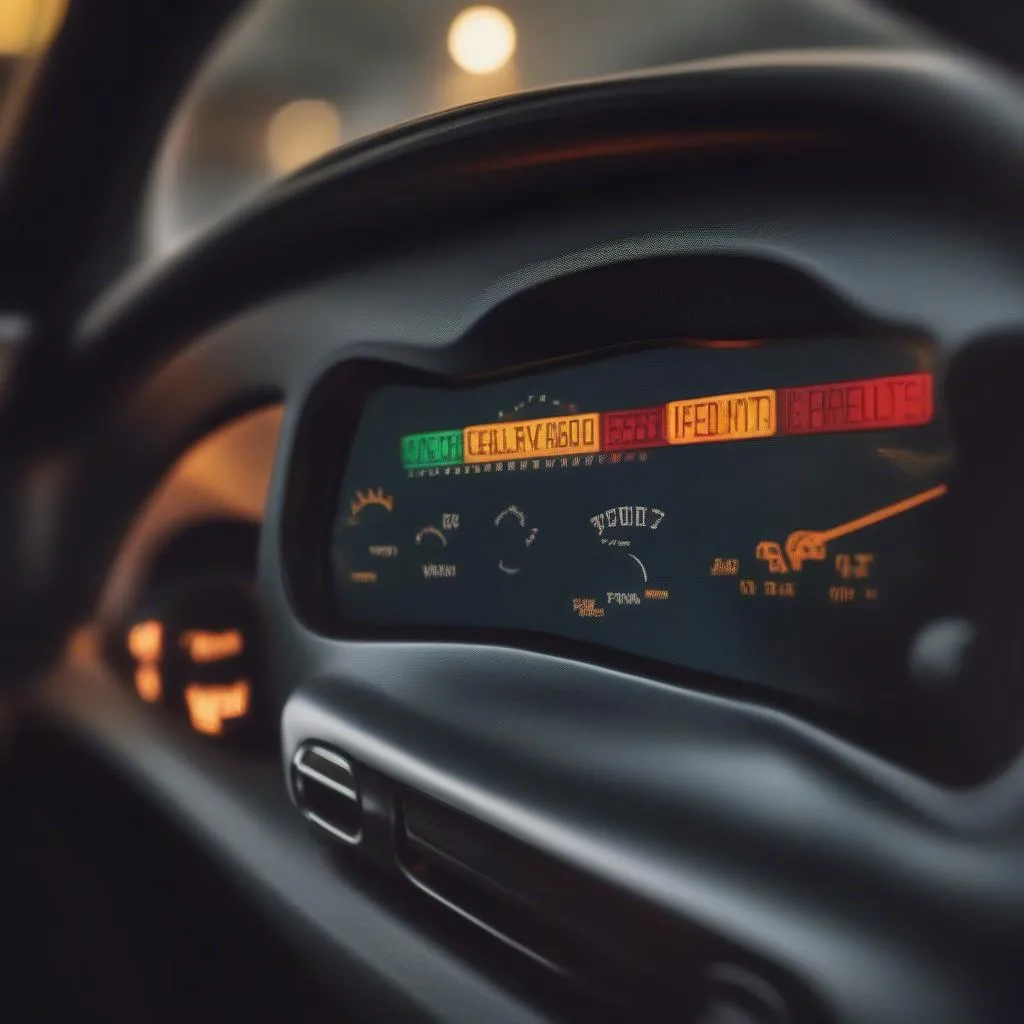Imagine this: you’re cruising down the highway, enjoying the open road, and suddenly your car starts shaking like a dog shaking off water. It’s not a subtle shimmy, but a full-blown vibration that makes you want to pull over ASAP. This is a common problem that many drivers face, and it can be a sign of various underlying issues.
Understanding Car Vibrations While Accelerating
This issue is more than just an annoyance; it can be a symptom of a serious problem that, if left unaddressed, could lead to further damage and even safety risks. So, let’s dive into the technical details:
From the Mechanic’s Perspective
A mechanic will tell you that car vibrations while accelerating are a common indicator of a problem with the engine, transmission, or drivetrain. They could be caused by a misfire, a faulty spark plug, a worn-out engine mount, or a problem with the transmission.
Technical Insights
From an automotive engineering perspective, a car’s acceleration depends on the power delivered from the engine to the wheels through a complex system of components. A smooth acceleration relies on each component working in harmony. When there’s a problem in this system, it can disrupt this harmony, leading to vibrations you feel in the car.
Economic Implications
Car vibrations can also have economic consequences. They can lead to decreased fuel efficiency, increased wear and tear on your vehicle, and even premature engine failure. This can result in costly repairs and potential downtime.
Common Causes and Solutions
1. Engine Misfire
An engine misfire occurs when one or more cylinders fail to ignite properly. This can cause a rough idle, a loss of power, and vibrations during acceleration. A misfire is often caused by faulty spark plugs, worn-out ignition wires, a bad fuel injector, or a problem with the ignition coil.
Solution:
- Replacing worn-out spark plugs is a common solution. This is a relatively inexpensive and straightforward repair that can often solve the problem.
- Inspecting and replacing ignition wires is another crucial step.
- Checking fuel injectors is also necessary, as clogged injectors can cause a misfire.
- Inspecting the ignition coil can identify any issues related to the ignition system.
Example: Imagine driving down the highway, and suddenly your car starts shaking violently. You feel a noticeable drop in power. This could be a classic sign of an engine misfire. You could get this problem diagnosed by a mechanic who can use a scanner tool to pinpoint the cylinder experiencing the misfire.
2. Worn-out Engine Mounts
Engine mounts are rubber components that isolate the engine from the chassis, absorbing vibrations and preventing them from transmitting into the cabin. Over time, these mounts can wear out, causing the engine to move excessively during acceleration, resulting in vibrations.
Solution:
- Replace worn-out engine mounts is the only solution. This is a fairly simple repair that a mechanic can complete in a short amount of time.
Example: You’re driving on a bumpy road and notice a thumping noise every time you accelerate. This could be a sign of a worn-out engine mount that’s no longer effectively absorbing vibrations.
3. Faulty Transmission
A faulty transmission can cause vibrations during acceleration, especially if it’s slipping or experiencing problems with the clutch. This can be due to low transmission fluid, worn-out clutch plates, or a failing transmission.
Solution:
- Check the transmission fluid level. If it’s low, you’ll need to add more.
- Inspect the transmission for leaks. Leaks can cause the fluid level to drop, leading to transmission problems.
- Replace the clutch plates if they’re worn out.
- Consider a transmission rebuild if the problem is more serious.
Example: Let’s say you’re driving in rush hour traffic in New York City and notice a jolting sensation as you accelerate from a stop. This could be a sign of a faulty transmission that needs to be diagnosed and repaired.
4. Wheel Imbalance
Wheel imbalance occurs when the weight distribution in a wheel is uneven. This can cause vibrations that are felt at various speeds, particularly during acceleration.
Solution:
- Get your wheels balanced. This is a simple and inexpensive procedure that can solve the problem.
Example: You’re driving down Route 66, enjoying the scenic route, and notice your car shaking uncontrollably at a certain speed. This could be a sign of wheel imbalance.
5. Damaged CV Joints
CV joints are located in the drive shaft and are responsible for transmitting power from the transmission to the wheels. Damage to a CV joint can cause vibrations during acceleration.
Solution:
- Replace the damaged CV joint is the solution.
Example: You’re driving through the mountains of California and hear a clicking sound coming from the front of your car, especially when turning or accelerating. This could be a sign of a damaged CV joint that needs to be replaced.
When to See a Mechanic
If you notice any vibrations during acceleration, it’s crucial to take your car to a trusted mechanic for diagnosis and repair. While some of these issues can be easily addressed, others may require more involved repairs.
Common Questions About Car Vibrations
How do I know what is causing the vibrations?
The only way to know for sure is to have your car diagnosed by a mechanic. They can use a scanner to check for error codes and test various components to identify the root cause of the problem.
How serious is a car vibration?
Car vibrations can range in severity from minor annoyances to serious problems that could lead to further damage or even safety hazards. It’s important to get the issue diagnosed and repaired as soon as possible to prevent further problems.
Can I fix a car vibration myself?
While some minor issues, like a worn-out spark plug, might be within the capabilities of a DIYer, most vibration problems require specialized tools and expertise. It’s always best to consult with a professional mechanic.
Need Help With Your Car?
If you’re experiencing vibrations while accelerating and need help diagnosing the problem, feel free to reach out to us. We can assist you with finding a reputable mechanic in your area.
Other Helpful Resources
- [Car Shakes When Going Over 50] – Read more about this related issue.
- [Car Shakes at Low Speed] – Learn about this common problem and its solutions.
- [Why Does My Car Shake When I Accelerate?] – Find more information on this topic.
 Engine Vibration
Engine Vibration
 Car Dashboard
Car Dashboard
Don’t let car vibrations ruin your driving experience! Contact us today for expert help and support. We’re here to help you get back on the road safely and confidently.
Whatsapp: +84767531508